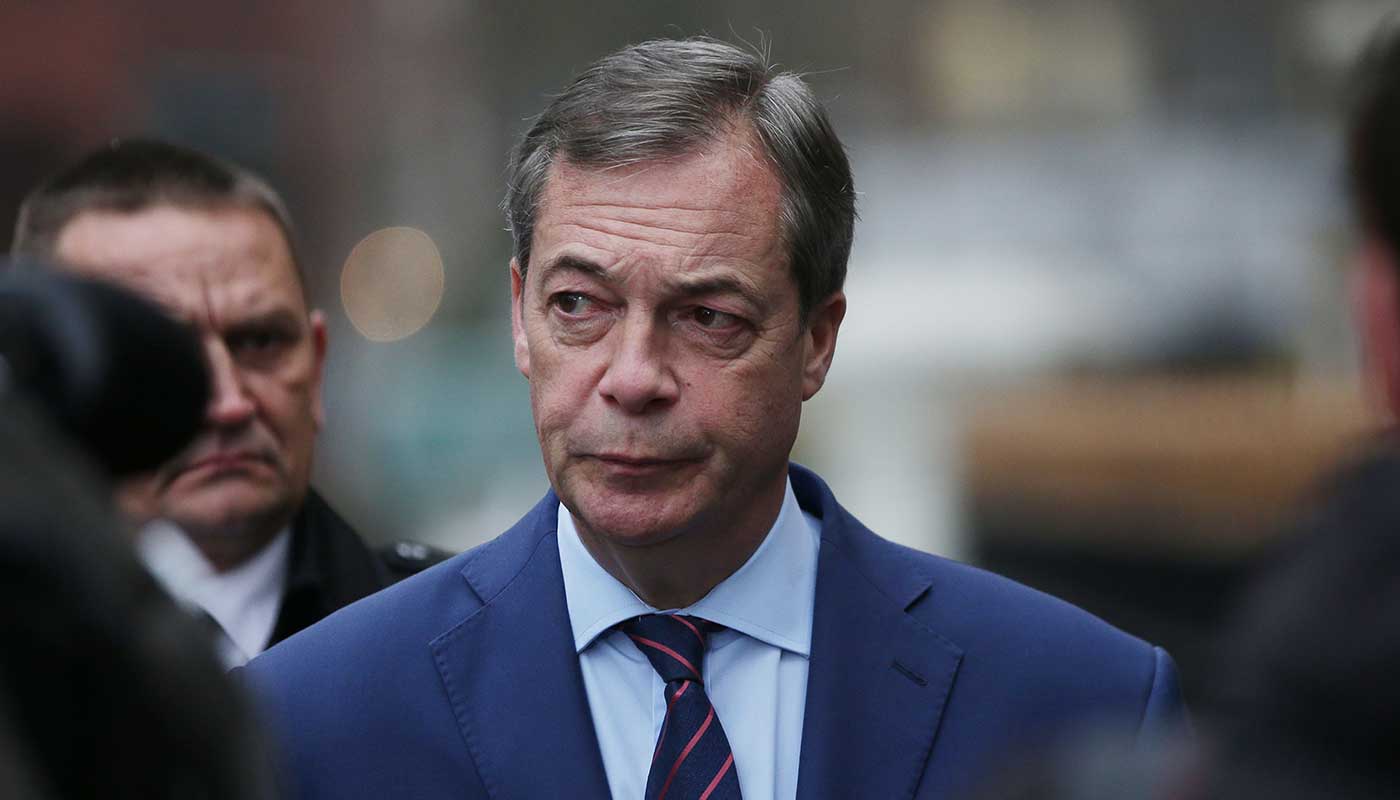Does the Brexit Party have a future?
Farage rolls over for Conservatives in majority of UK seats

A free daily email with the biggest news stories of the day – and the best features from TheWeek.com
You are now subscribed
Your newsletter sign-up was successful
Nigel Farage has agreed to pull Brexit Party candidates from Conservative-held constituencies in the 12 December general election, after coming under pressure not to split the Leave vote.
Farage’s party will not stand candidates in the 317 seats won by the Tories in 2017, but will still compete in about 300 seats held by Labour and pro-remain parties.
However, calls are growing for Farage to stand down all of his candidates, in order to prevent another hung parliament that thwarts Brexit.
The Week
Escape your echo chamber. Get the facts behind the news, plus analysis from multiple perspectives.

Sign up for The Week's Free Newsletters
From our morning news briefing to a weekly Good News Newsletter, get the best of The Week delivered directly to your inbox.
From our morning news briefing to a weekly Good News Newsletter, get the best of The Week delivered directly to your inbox.
Why was the Brexit Party launched?
The Brexit Party Limited was registered with Companies house in November 2018 and formally launched in January 2019 by UKIP’s Catherine Blaiklock, who became the party’s first leader.
Blaiklock resigned in March 2019 following a row over Islamophobic messages, and Farage took over as leader.
The party was set up to make sure that the UK left the EU - a goal that has yet to be achieved.
A free daily email with the biggest news stories of the day – and the best features from TheWeek.com
But it did enjoy success in the UK’s European elections in May, winning the highest share of the vote (32%) and sending 28 MEPs to Brussels.
However, like UKIP - Farage’s last anti-EU party - the Brexit Party doesn’t have any MPs.
What was behind Farage’s decision to stand aside?
Farage announced the standing down of more than half of the Brexit Party candidates ahead of Thursday’s 4pm deadline to submit election paperwork, says The Telegraph.
The Brexit stalwart had come under pressure from Conservatives and Brexiteers not to split the Leave vote between his party and the Tories.
According to the newspaper, insiders say Farage was also “spooked” by polling showing that his candidates would have lost the contest with Tory rivals.
As former Tory party chair Lord Ashcroft has noted, there has been “a slow haemorrhaging of support for the Brexit Party”.
“Its supporters are concerned about a Jeremy Corbyn government, and a Brexit half a loaf may be better than no loaf,” he said.
The Daily Mail piled the pressure on Farage over the weekend, with a front-page headline that read “Stand down, Nigel!” and an editorial calling on readers to urge their local Brexit Party candidate to stand down against the Conservatives.
Around 20 candidates had already withdrawn from the election, with “dozens more threatening to follow suit”, says the Telegraph.
An insider told the paper: “The churn was much worse than they were letting on. The number of drop-outs is much higher than they say.”
Another suggested that the ailing party “hasn’t got the bandwidth to confidently field more than 50 candidates”.
But Farage insisted on Monday that his decision had been made for the good of the nation, saying: “I think our action, this announcement today, prevents a second referendum from happening.”
What does it mean for the Brexit Party?
An insider told the Telegraph that Farage might be willing to make further concessions if the Conservative manifesto ruled out extending the Brexit transition period and pledged that the UK will leave the EU, deal or no deal, by December 2020.
Most commentators insist Farage will be eyeing up an alliance with the Tories if his party can win seats in Westminster. Like the Democratic Unionist Party (DUP) in 2017, the Brexit Party could offer crucial support to a Conservative prime minister with a slim majority.
However, if the Conservatives win a majority that is willing to pass Boris Johnson’s Brexit deal - and the polls suggest they will - then the UK will leave the EU by 31 January.
This would almost certainly mark the end of Farage’s Brexit Party as an electoral force, even if it decided to limp on as a broader anti-EU lobby.